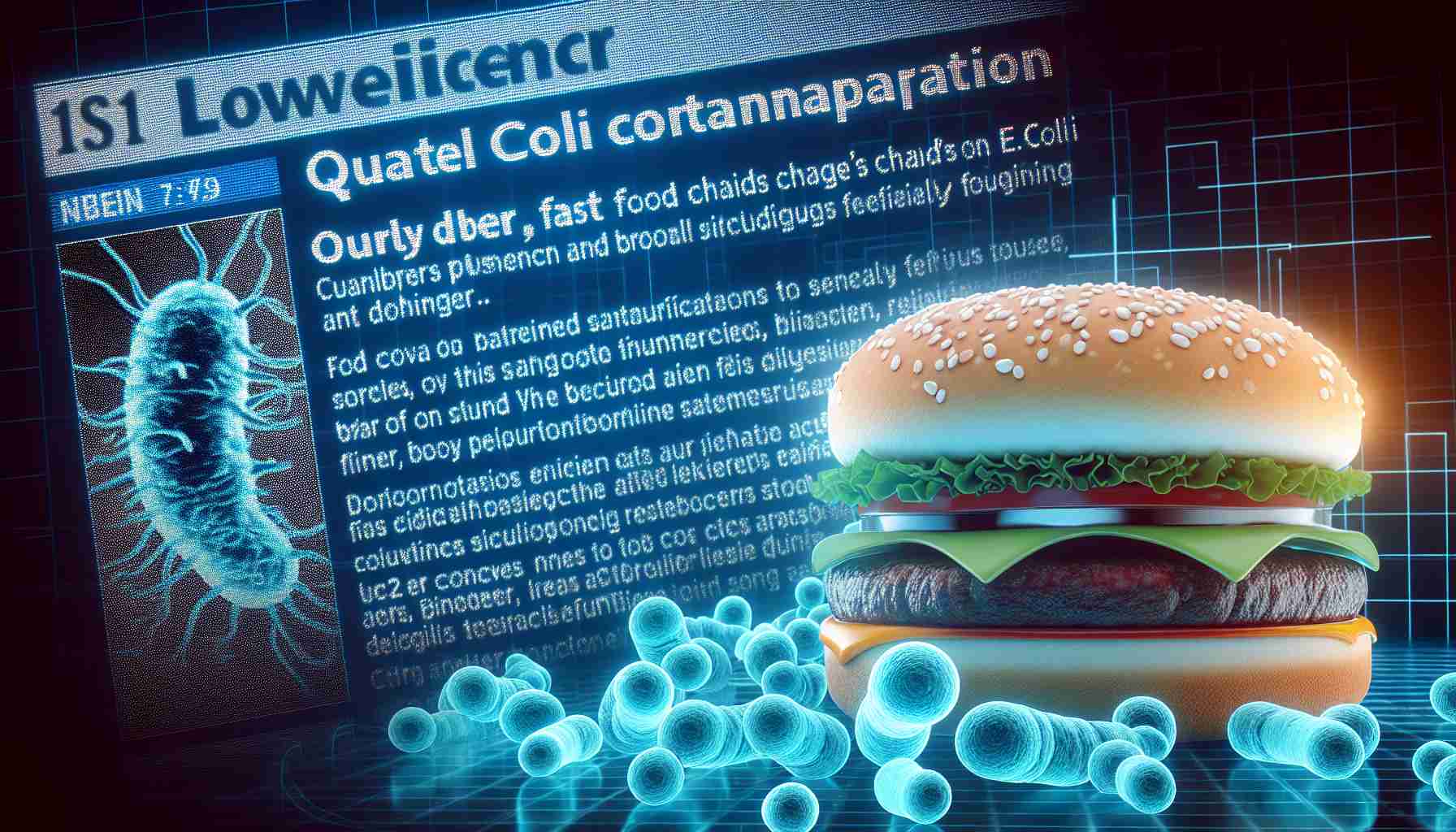The Centers for Disease Control and Prevention (CDC) is currently addressing a serious E. coli outbreak associated with McDonald’s Quarter Pounder hamburgers, impacting consumers across ten states. Tragically, health officials have confirmed one fatality linked to the outbreak, with an additional 49 individuals falling ill after consuming these burgers.
The geographical distribution of cases predominantly affects Colorado, Utah, Wyoming, and Nebraska. Specifically, Colorado has reported 26 illnesses, while cases have also emerged in states such as Oregon, Montana, Kansas, Missouri, Iowa, and Wisconsin. The initial reports of illness were recorded between September 27 and October 11, and among those affected, one older adult has died, while others have been hospitalized. Some of these cases included complications leading to hemolytic uremic syndrome, a condition that can cause significant kidney issues.
In response to this outbreak, McDonald’s has voluntarily withdrawn certain burger ingredients from affected locations, including the fresh slivered onions and quarter-pound beef patties. The CDC has stated that the precise source of contamination has not yet been determined and is collaborating with McDonald’s and local health departments to identify the cause.
Customers who have consumed Quarter Pounders and are experiencing symptoms indicative of E. coli, such as persistent diarrhea or high fever, are urged to seek medical attention. Usually, symptoms begin to manifest a few days after exposure, with many recovering within a week.
Staying Safe: Tips and Life Hacks Amid an E. Coli Outbreak
In light of the recent E. coli outbreak linked to McDonald’s Quarter Pounder hamburgers, it’s essential to take proactive measures to protect your health and well-being. Here are some practical tips, life hacks, and interesting facts to stay informed and safeguarded during such food safety challenges.
1. Know the Symptoms:
Understanding the symptoms of E. coli can help you identify potential illnesses early. Common symptoms include persistent diarrhea, abdominal cramps, and high fever. If you experience these symptoms after consuming potentially contaminated food, seek medical attention promptly.
2. Stay Informed:
Keep up with reliable sources for updates on food safety. Websites like the CDC and local health departments provide timely information on outbreaks and safe food practices.
3. Practice Food Safety:
Improve your food handling techniques to minimize risk. Always wash your hands with soap and water before handling food, cook meat to safe temperatures, and avoid cross-contamination between raw meats and other foods.
4. Report Illnesses:
If you or someone in your household becomes ill after eating out, report it to your local health department. This can help officials track outbreaks and prevent further spread.
5. Stay Aware of Recalls:
Food companies often issue recalls following contamination concerns. Check recall information on sites like FDA to ensure the products in your kitchen are safe.
6. Understand Risk Groups:
Certain groups, including young children, older adults, and individuals with weakened immune systems, are more susceptible to severe E. coli infections. If you belong to these groups, take extra precautions when eating out.
7. DIY Home Testing:
While professional testing is preferred, consider purchasing home test kits for certain foodborne pathogens if you’re particularly concerned about food safety at home.
Interesting Fact:
Did you know that the E. coli bacteria can be found in the intestines of healthy cattle? Often, contamination occurs during the processing of meat when fecal matter is present. That’s why proper cooking and food handling are crucial to prevent infection.
8. Share Your Knowledge:
Educate friends and family about food safety. Awareness can go a long way in preventing the spread of foodborne illnesses.
9. Opt for Alternative Dining Options:
When issues arise with specific chains, consider supporting local restaurants or exploring home-cooked meals. This gives you more control over food preparation and can reduce the risk of exposure.
By following these tips and staying informed, you can navigate through public health concerns more effectively and keep yourself and your loved ones safe. Remember, knowledge is power, especially in ensuring food safety. For more insights and support on health topics, visit Healthline.
